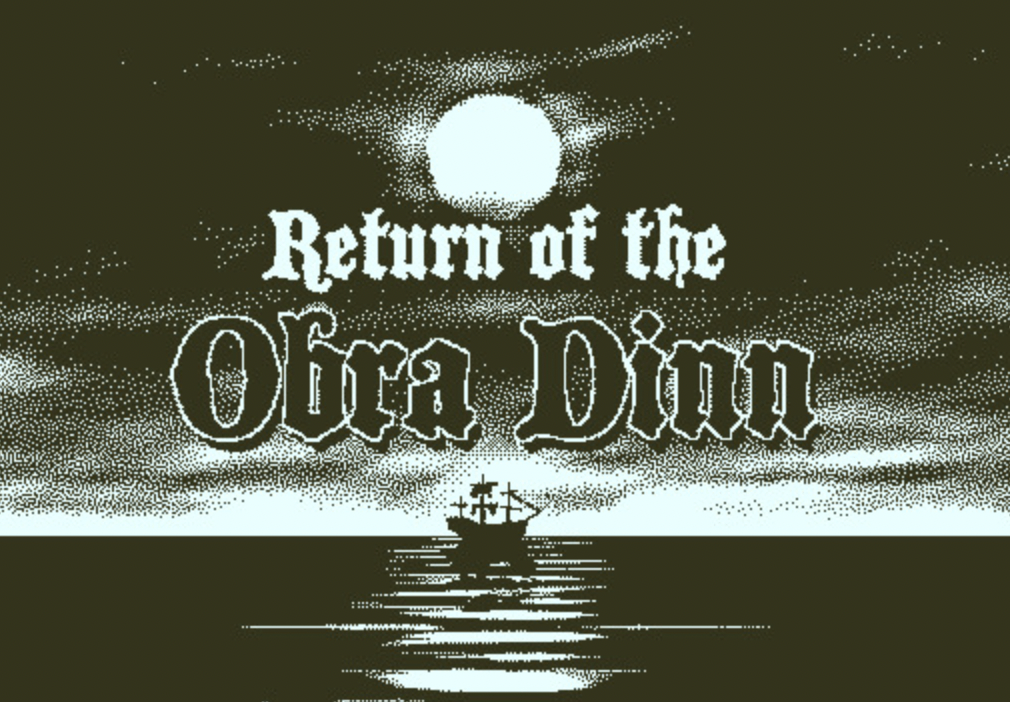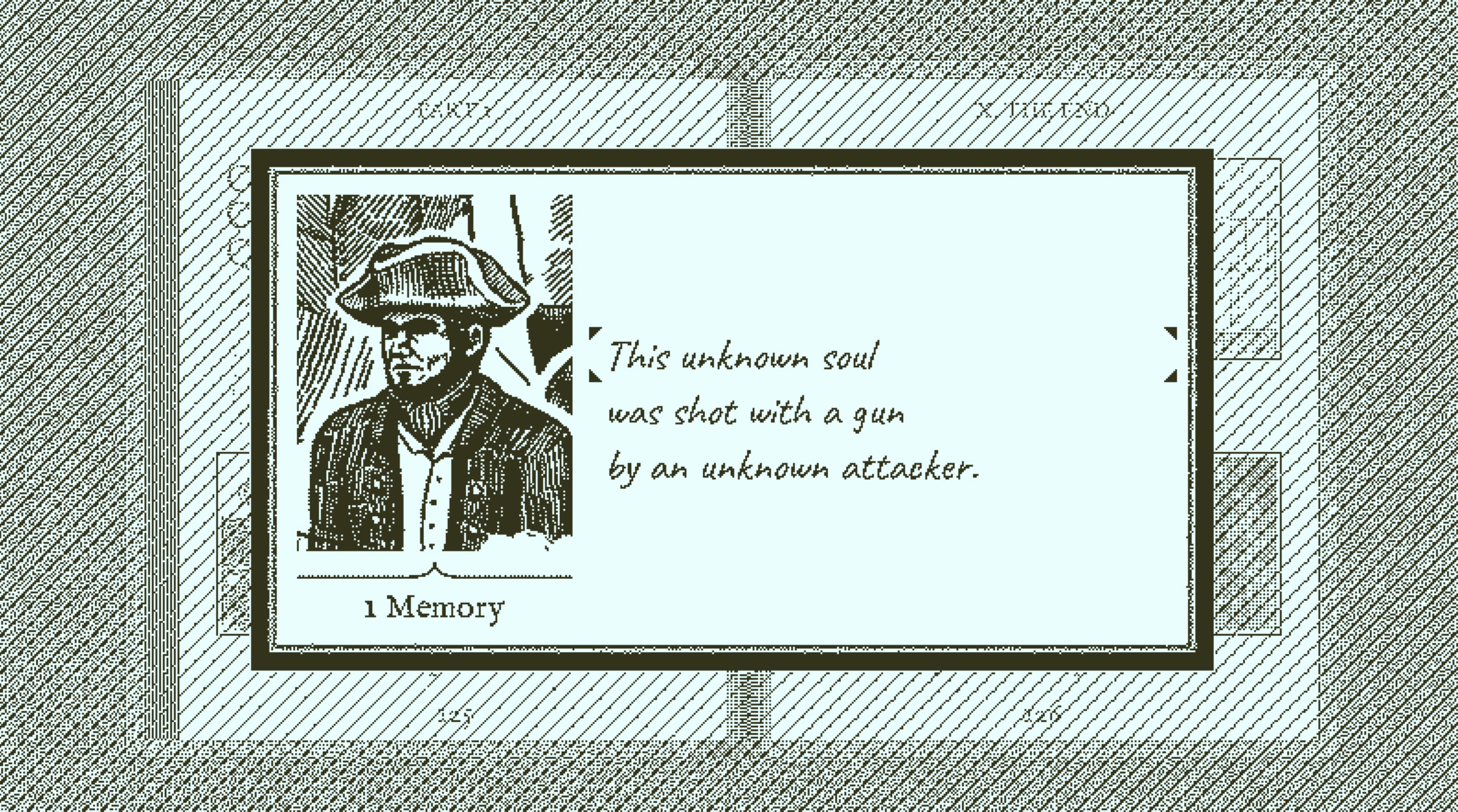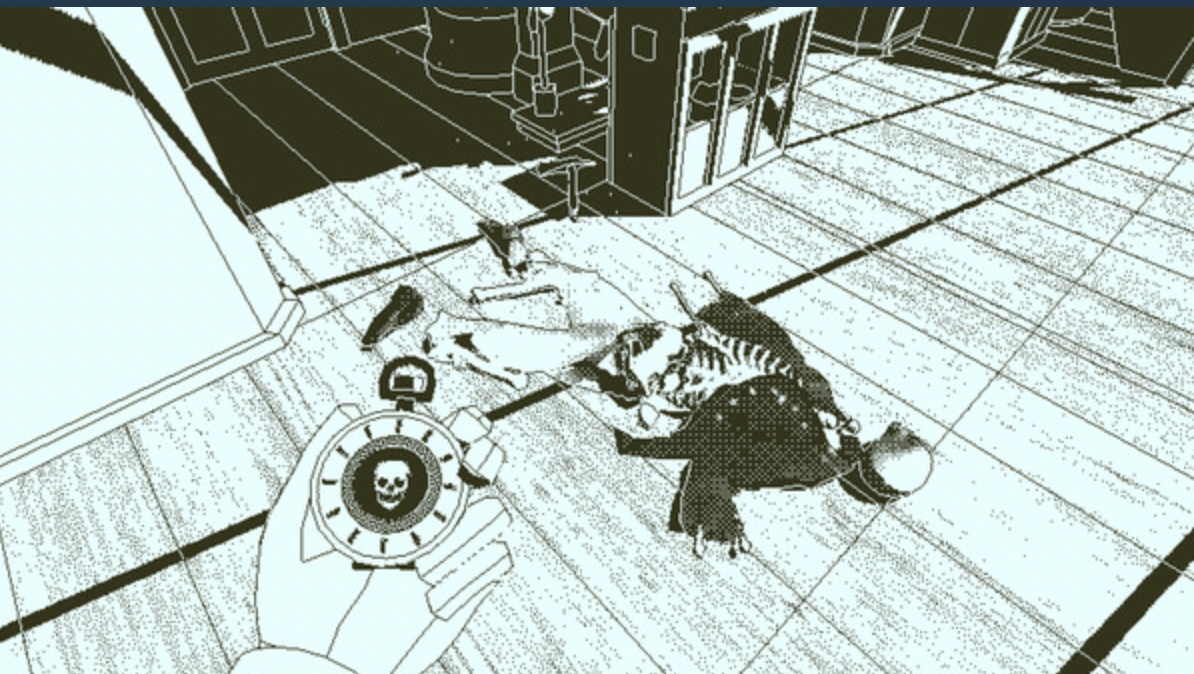
I played Return of the Obra Dinn, by Lucas Pope. It’s a visually striking game with 1-bit graphics, where you’re an insurance agent tasked with uncovering what happened on a ship that’s come to port without any survivors on-board. You have to identify when and how each crew member died.
Mechanically, it plays like a walking sim, and seems targeted at fans of mysteries and narrative-heavy, slower-paced games.
You’re given an outline of the events that led to the Obra Dinn’s tragic demise in the form of a very literal outline, prepared by another agent, that takes the form of a 100 page book. It starts with some photographs of the crew from when they set sail, a list of the crew’s various origins and duties, and then chapters corresponding to different events that get filled in as you witness them. To witness them, you use a pocketwatch that lets you relive a memory associated with a particular object or place. While in that memory, you can hear speech, and walk around the deck to see what else is going on, and trigger nested memories associated with the objects you find.
 You must gather evidence to support your guesses about who died to what, and when, and construct the overall timeline of events.
You must gather evidence to support your guesses about who died to what, and when, and construct the overall timeline of events.
The narrative itself is the mystery. It starts out fractured. There are consistent entry points into the story after that the order players uncover the narrative can vary greatly. In my playthrough, I discovered a murder early on, but it wasn’t until much later that I figured out who had done it, and why. This was confusing, which in another game could have been a strike against it. Here, however, I expected it to unfold like a puzzle, so the fact that it didn’t make sense just made me more excited to figure things out.

One major issue I had with the game was the accessibility of some of the mechanics. It’s very important to determine what accent people are using, so you can narrow down potential speakers by nationality. However, this isn’t included in the subtitles, making the puzzles much more difficult for anyone who can’t hear, or, as in my case, is commuting and not playing with sound. I would add the option to tag accents in the subtitles to address this, and to give players the option to vary difficulty.
This is my next major criticism – although the game felt fair, there isn’t really a way to adjust the difficulty. A hint system, or the ability to optionally let yourself ‘guess and check’ different fields in the in-game journal would be helpful. I stopped playing when I got stuck on one clue for ~10 minutes, and didn’t return to the game. Although some players might welcome this challenge, for me it was just frustrating. Hitting a difficulty sweet spot here would allow players outside a dedicated audience of puzzle-lovers to fully experience it too – especially those who are primarily interested in the story (which is great!).


